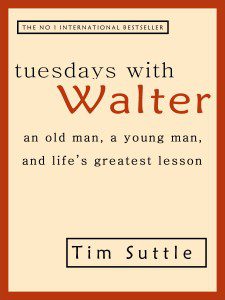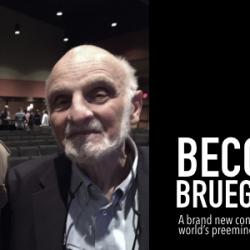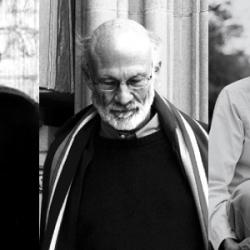 At Redemption Church our staff doesn’t read leadership books, we read about theology and scripture, so we can be formed by a story and tradition untainted by contemporary church leadership paradigms. Right now we are reading Walter Brueggemann’s The Prophetic Imagination. For the next few weeks my Tuesday blog entry will deal with this book and its implications for church leadership.
At Redemption Church our staff doesn’t read leadership books, we read about theology and scripture, so we can be formed by a story and tradition untainted by contemporary church leadership paradigms. Right now we are reading Walter Brueggemann’s The Prophetic Imagination. For the next few weeks my Tuesday blog entry will deal with this book and its implications for church leadership.
Chapter 01 – second half
The contemporary notion of what it means to be a prophet bears little resemblance to the prophets of the Old Testament. Brueggemann argues that the prophet as fortune teller is a gross misrepresentation of what the prophetic office meant to the children of Israel. Modern day prophets predict the future (with very little success, I might add). They tell your fortune, or that of a society. They warn of coming destruction and forecast calamitous global events. They manipulate people and gain power and influence by claiming to possess privileged information from God concerning what will happen in the world.
This is not prophecy, this is P.T. Barnum hawking nostrums.
One of the most powerful lessons one can learn from WB is that the prophetic office is not about telling the future or reading the tea leaves. The prophetic office is a specific and essential role which is dedicated not to the prediction of the future, but to the critique of the present, and to the imagination of a future that aligns with the kingdom of God. The prophetic office involves two distinct moves:
Prophetic Criticism
Brueggemann says, “Criticism is not carping and denouncing. It is asserting that false claims to authority and power cannot keep their promises.” (11) The prophet begins by asserting that the Empire cannot keep its promises to make us safe and happy, only God can do that. The prophet helps us to see that under the influence of the empire we are “pressed and urged and invited to pretend that things are all right” and “as long as the empire can keep the pretense alive… there will be no serious criticism.” (11) The prophet doesn’t predict calamity as much as they simply tell the truth about where our current tack will take us.
The prophet, therefore, is concerned primarily with injustice. The prophet always speaks out on behalf of those on the margins of the culture who are suffering at the hands of the powerful. The prophet does not say “here’s what’s going to happen in the future.” The prophet says “here is what is going on in the present that is unjust. This injustice has a very predictable future: it will not stand because God will not allow it.”
Prophetic Energizing
The prophet energizes people to believe that a different reality is possible. WB suggest three energizing dimensions. 1) Those who despair cannot see how newness can come. Those who despair (even if they are part of the people of God), stand with Egypt, or the empire. The prophet energizes a community who dares to believe and affirm that things will turn out differently than the empire has planned. Moses knew what Pharaoh didn’t: the identity of the world’s true lord. 2) The future reality is named, and it is proclaimed that God is on the side of those who suffer the injustice. 3) The result is a worshipping community committed to God who is the agent of human freedom from bondage (to sin, death, decay, the powers of evil, suffering, poverty, and so on).
Reflections for leadership
The prophetic leader doesn’t tell the future so much as they point out the natural consequences of the current actions of the group. The prophetic leader is the one who is able to name the anxieties of the group without participating in them. The prophetic leader unmasks the powers of the culture – individualism, consumerism, nationalism – refusing to allow those powers to claim ultimate authority, and pointing to their eventual failure. Then the leader energizes a community to imagine a different future; one in which God reigns in the hearts and lives of his people and in the societies of which they are a part. The prophetic leader inspires people to live into that future – not the future into which the empire or the powers of the world wish them to live. The prophet’s most powerful vision is not merely about calamity for the evil. The prophet’s most powerful vision is of a future where God reigns. This is the vision that actually subverts the false powers of the world.












